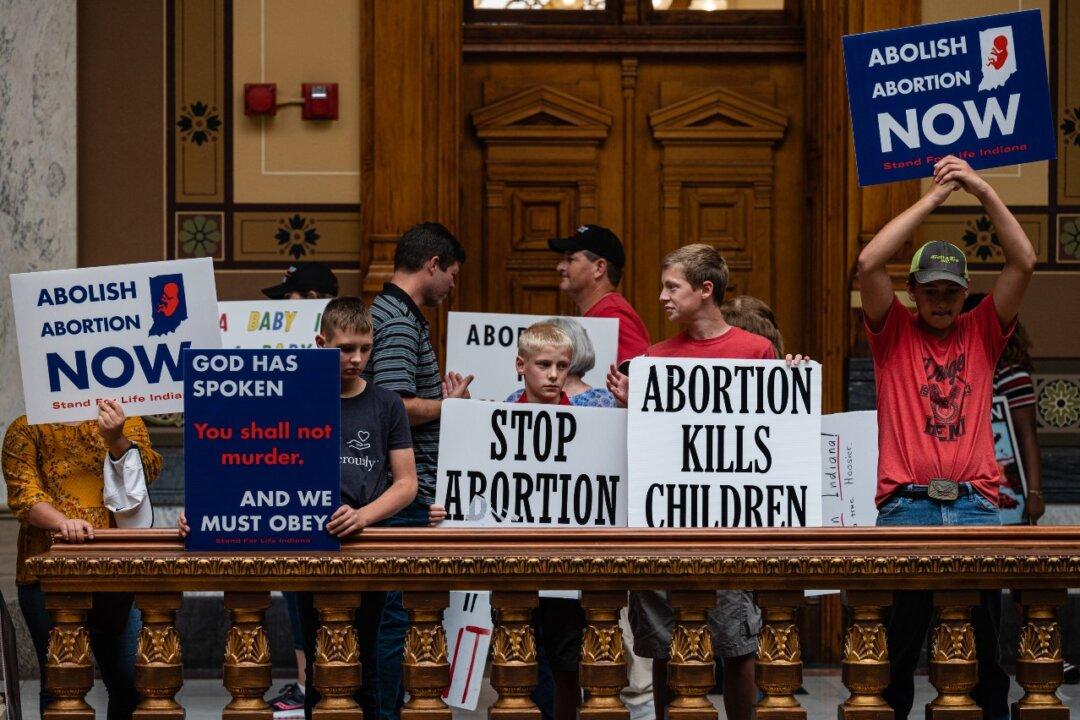An Indiana county judge has ruled against abortion providers and advocacy groups seeking to broaden access to abortion under the state’s near-total ban, enacted in 2022 after the Supreme Court overturned Roe v. Wade.
Judge Kelsey Blake Hanlon, who presided over a three-day trial in May, issued an order on Sept. 11 that denies a request for a permanent injunction sought by Planned Parenthood and the American Civil Liberties Union (ACLU) of Indiana, which mounted a legal challenge against Senate Bill 1 (SB 1).





